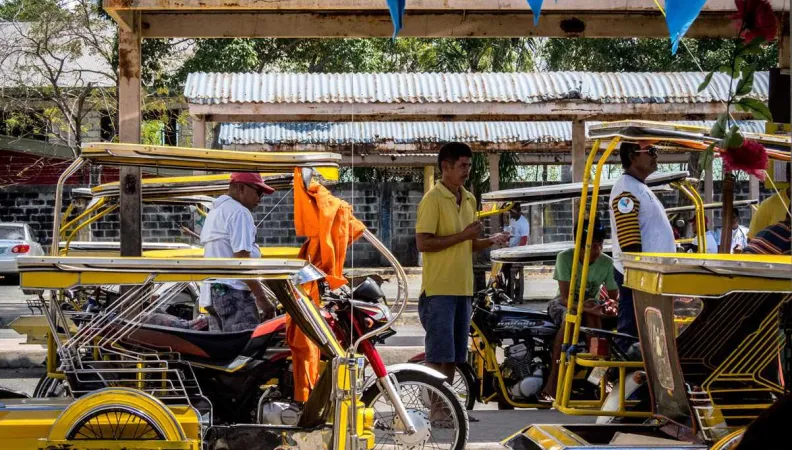Share the page
Improving the transport system in Cebu
Project


-
Project start date
-
Status
Ongoing
-
Project duration
-
Tranche 1: 18 years ;Tranche 2: 15.5 years
-
AFD financing amount
-
€ 50 893 963
-
Country and region
-
Location
-
Metro Cebu
-
Type of financing
-
Beneficiaries
-
Republic of the Philippines, Ministry of Transport
In Cebu, the second largest city in the Philippines, the Bus Rapid Transit project running on priority, financed by AFD, lanes will provide the city with an efficient and affordable urban transport system, which acts as a catalyst for a real urban transformation.
Context
Metro Cebu, the Philippines’ second largest metropolitan area, faces increasing congestion, increase in average travel times, a rise in the number of accidents, local and noise pollution, growing fossil fuel consumption, and a rising level of greenhouse gas emissions.
Local authorities have therefore decided to implement an urban transport improvement strategy, relying on public transport, for integrated development and urban space management. The Cebu Bus Rapid Transit (BRT) project is a catalyst for such transformations.
Description
The BRT project aims to provide the city with an efficient, safe and affordable urban transport system. Under the current design, the bus service will operate on dedicated routes or priority lanes and mixed feeder lanes, along a proposed 13.8 km-long corridor with 17 stations, a depot and a terminal. Beyond BRT infrastructure, the project also allows the optimization of the transportation systems and of road circulation in Metro Cebu through improvements to road intersections and parking facilities, centralized traffic management and urban space enhancement.
As the first BRT in the country, it is one of the government's flagship infrastructure projects for its potential replicability in other cities in the country.
Impacts
The project is expected to generate multidimensional positive impacts for Metro Cebu:
- Environmental: reduction of greenhouse gas emissions (between 80,000 and 185,000 teq CO2 a year);
- Economic and social: improvement in services for users, with the objective to carry more than 160,000 passengers per day by 2025; overall improvement of the traffic in Metro Cebu; better access to employment and services; reduction in the number of accidents; improved working conditions for the current transport providers;
- Institutional: the project and its preparation builds up national and local capacities for transport planning and regulations. This would facilitate the creation of entities to lead future BRT projects in the country.


